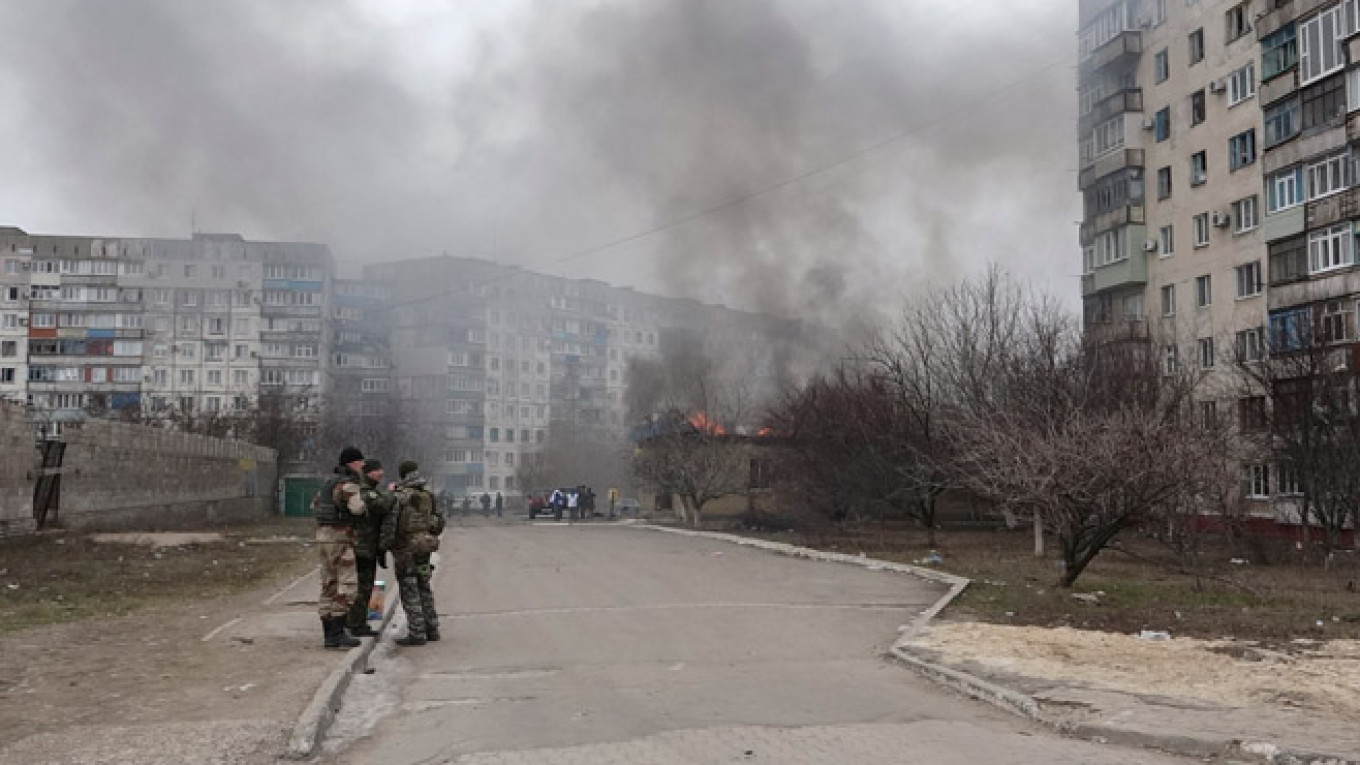Everybody knows that so-called Novorossia in eastern Ukraine is awash with modern Russian weapons. Social networks publish photos and videos daily showing endless columns of military vehicles traversing the region. Whenever Ukrainian forces manage to destroy such a column, they show the documents carried by the soldiers who manned the tanks and armored vehicles.
And yet, as recently as last week, Foreign Minister Sergei Lavrov once again stated that Russia does not supply military equipment to the separatists and demanded that Russia's accusers present evidence.
"I repeat, the proof must be material evidence and nothing else," Lavrov said. Russian Ambassador to the United Nations Vitaly Churkin says the same thing at each meeting of the United Nations Security Council.
It has already become a bad joke. They are presented with evidence and yet they continue to respond, "I don't see anything. When will you finally provide proof?"
Last weekend, for the first time in a long time,? U.S. President Barack Obama and NATO Secretary-General Jens Stoltenberg spoke very clearly and specifically about the situation.
After the shelling of residential areas in Mariupol, the secretary-general stated: "Russian troops in eastern Ukraine are supporting these offensive operations with command and control systems, air defense systems with advanced surface-to-air missiles, unmanned aerial systems, advanced multiple rocket launcher systems, and electronic warfare systems."
Obama basically said the same thing: "We are deeply concerned about the latest break in the cease-fire and the aggression that these separatists — with Russian backing, Russian equipment, Russian financing, Russian training and Russian troops — are conducting," he said.
Of course, there is nothing new about one state transferring weapons to separatists in another state. But Russia has managed to become a pioneer in this practice for two reasons: the class of weapons it is putting into the hands of the separatists, and how they are employed.
For the first time in history, separatists have been given the ability to shoot down airplanes flying at an altitude of 10,000 meters and probably for the first time received powerful multiple rocket launchers.
The Vostochny neighborhood in Mariupol was shelled by Grad (Hailstorm) and Uragan (Hurricane) missile systems. These are multiple rocket launchers of terrible destructive force, weapons that destroy every living thing over a large area.
When Russia decided to take control of its border with Ukraine, the Russian military just started pouring down these Grad and Uragan rockets on the border territory.
I posted a photo on my blog that was taken last Sunday in the Ukrainian city of Shakhtersk, now under control of pro-Russian separatists. The photo shows two Pantsir-S1 truck-mounted anti-aircraft and surface-to-air missile systems.
The Russian army incorporated this modification in 2012. It has never been part of the Ukrainian defenses. So how did two of them wind up in Shakhtersk — and not in an outlying field or wooded area, but in the yard of a large apartment complex?
Obviously, no "separatists" could operate such advanced weaponry. Only specially trained Russian soldiers have that know-how.
But why were they stationed in a residential neighborhood? Obviously, somebody had ordered them to park there. That way, any attempt to destroy those weapons would inevitably result in numerous civilian casualties.
And this is Russia's second innovation in Ukraine: It is not just supplying separatists with enormously powerful weapons, but it is using the local population — that ostensibly called in those troops for its own protection — as a human shield.
Andrei Malgin is a journalist, literary critic and blogger.
A Message from The Moscow Times:
Dear readers,
We are facing unprecedented challenges. Russia's Prosecutor General's Office has designated The Moscow Times as an "undesirable" organization, criminalizing our work and putting our staff at risk of prosecution. This follows our earlier unjust labeling as a "foreign agent."
These actions are direct attempts to silence independent journalism in Russia. The authorities claim our work "discredits the decisions of the Russian leadership." We see things differently: we strive to provide accurate, unbiased reporting on Russia.
We, the journalists of The Moscow Times, refuse to be silenced. But to continue our work, we need your help.
Your support, no matter how small, makes a world of difference. If you can, please support us monthly starting from just $2. It's quick to set up, and every contribution makes a significant impact.
By supporting The Moscow Times, you're defending open, independent journalism in the face of repression. Thank you for standing with us.
Remind me later.


